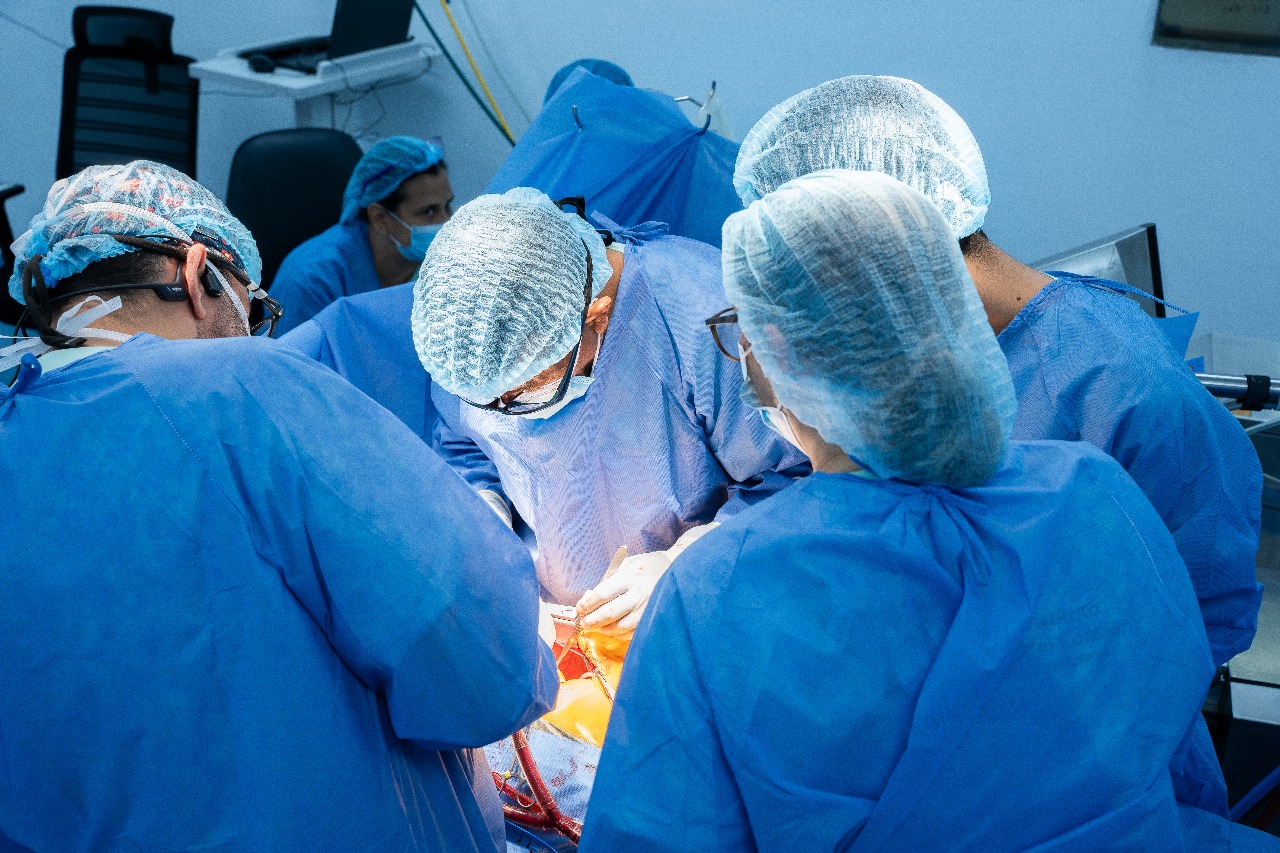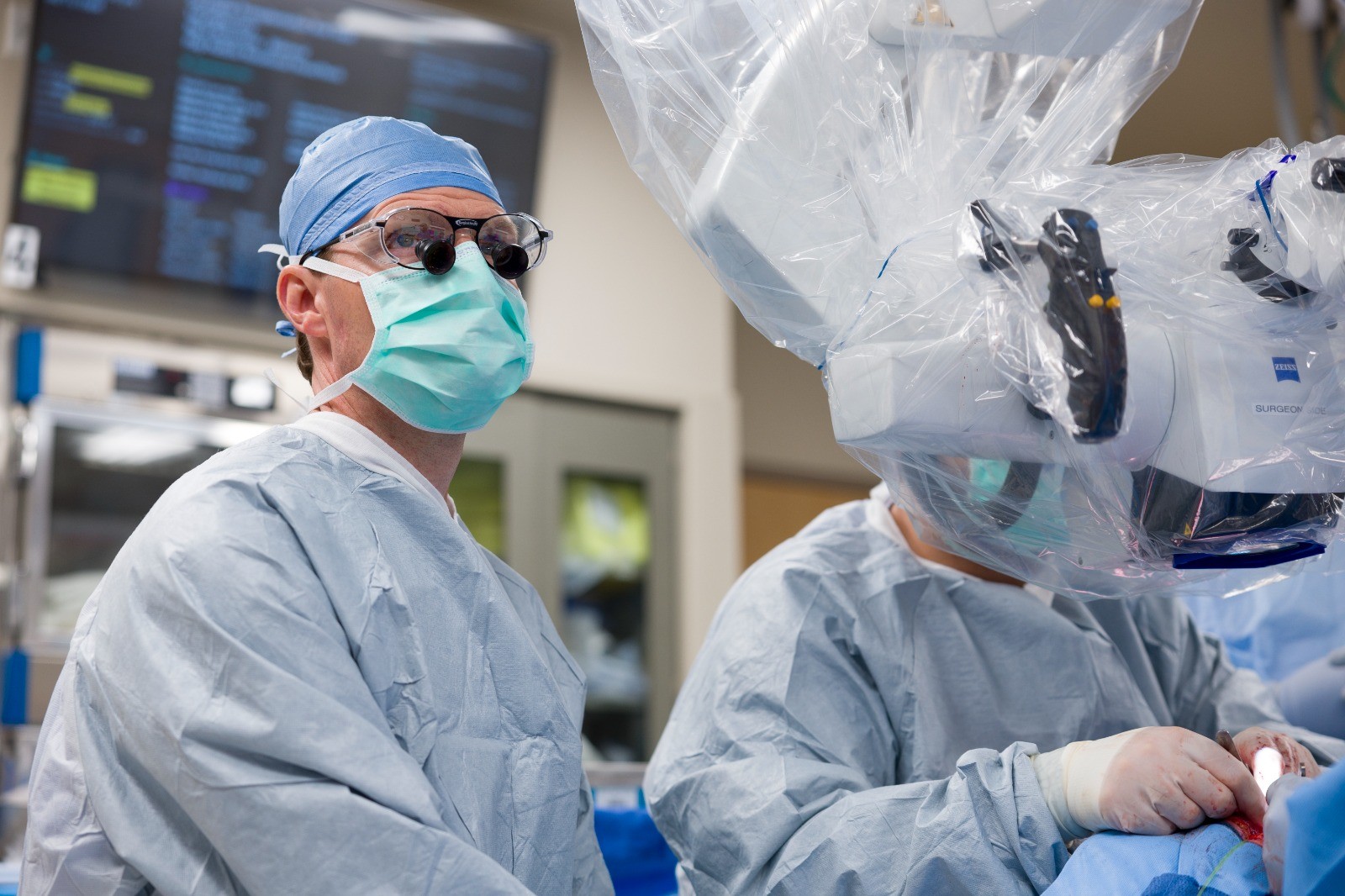Transplant recipients would no longer have to take lifelong medications to prevent their bodies from rejecting the organ they received.

Although immunosuppressive medications are essential for preventing organ transplant rejection, they also carry several drawbacks. They can cause side effects such as headaches and tremors, and increase the risk of infections and cancer. But what if there were a way to prevent organ rejection without resorting to these medications?

Heart transplant surgery. Photo: FCV
This goal is what motivates the work of Dr. Mark Stegall, a Mayo Clinic transplant researcher with extensive experience. He leads a team of researchers developing pioneering therapies to prevent organ rejection without requiring patients to take lifelong medications that suppress their immune systems. This team's promising study was recently published in the American Journal of Transplantation.
“We've seen that stopping medications, even eight to ten years after transplant, can lead to rejection. Our goal is to find ways to reduce or eliminate the need for immunosuppressants after transplant, so patients can retain their organ longer and with fewer side effects,” says Andrew Bentall, MD, M.D., a transplant nephrologist also on the Mayo Clinic team.
In Colombia, over the past 20 years, more than 22,000 transplants have been performed under the coordination of the National Institute of Health. This translates into a large number of patients who have received an organ in the country and who could eventually benefit from these scientific advances.

Larynx transplant surgery in Arizona at the Mayo Clinic. Photo: Mayo Clinic
The aim of the study was to test whether people who simultaneously received a kidney and stem cell transplant from a highly matched sibling could discontinue all immunosuppressive medications after one year. The results were promising. The study revealed that 75% of participants were able to stop taking the medications for more than two years.
"I've been working in transplant research for more than 30 years, and we've accomplished many remarkable things. But overall, this research is among the highlights. It's been a goal—to safely wean transplant recipients off immunosuppressants—since before I even started in this field. We're very excited about it," says Dr. Stegall, a co-author on the study.
The research being conducted across Mayo Clinic is part of a growing trend in the field of transplantation, exploring ways to use cell therapies to prevent organ rejection. This approach is also one of the pillars of the Mayo Clinic Transformative Transplant Initiative, which has the bold goal of ensuring that everyone who needs a transplant can receive one, and that those transplants are more successful.
To qualify for the clinical trial, transplant recipients and donors had to be siblings with highly compatible tissue types. In addition to the kidney, the donor also agreed to donate their stem cells to their brother or sister. The recipient received the transplant, underwent radiation therapy, and then the stem cell transplant. The goal was to phase out immunosuppressive medications after one year.
"It's almost as if the transplant never happened." For Mark Welter of Minnesota, USA, the results have exceeded his expectations. Four years ago, he needed a kidney transplant due to polycystic kidney disease, an inherited condition that causes cysts to grow in the kidneys. As a Mayo Clinic patient, he volunteered to participate in the clinical trial hoping to avoid having to worry about immunosuppressive medications for the rest of his life. His sister Cindy immediately volunteered to donate a kidney and her stem cells to help him.
The result? Mark has been off immunosuppressant drugs for over three years, and his sister says, "Watching him get off those medications has been incredible. He's now able to live his life to the fullest. He's been able to see his two daughters get married and meet his grandchildren."
"I feel fantastic. In fact, I feel like I did before the transplant, and that's the best part," says Mark. "It's almost as if the transplant never happened."
Still, much work remains to be done to advance this line of research. This clinical trial initially included siblings with highly compatible tissue types. Now, researchers want to determine whether stem cell transplants can also prevent rejection in recipients with less compatible donors.
Environment and Health Journalist
eltiempo





